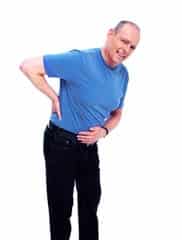How to Manage Recurring Kidney Stones

Lowering Risks
There may be no way to guarantee kidney stone prevention. However, science suggests that certain habits can substantially reduce risks. These include:
- Consuming sufficient amounts of water. Hydration is vital to kidney function, and staying hydrated may not be as simple as we’ve been told. Drinking eight glasses of water a day may not be quite enough, especially if you engage in physical activities that cause excessive sweating, such as hot yoga. According to studies, women need about 90 ounces of water a day and men need about 120 ounces.
- Avoid salt. Consuming too much salt can lead to kidney stones because it increases the concentration of calcium in your urine.
- Avoid a low and high calcium diet. Consuming calcium-rich foods like cheese and milk, kale and broccoli support optimal calcium storage in the body. This doesn’t just protect you from osteoporosis, but it can also help your body resist the formation of calcium oxalate kidney stones. That being said, too much calcium can lead to kidney stone formation, so monitor to calcium intake appropriately.
- Drink lemon water. Lemons and limes are bot high in citrate, a natural compound that dismantles calcium deposits in the body. One study suggests that 10 ounces of lemon juice a day, split into two servings, has significant preventive power against kidney stones.
- Avoid oxalate rich foods, as these can contribute to kidney stones. Oxalate rich foods include: spinach, peanuts, wine, tea and chocolate.
Treating Kidney Stones
Whether you suspect you may have initial or recurrent kidney stones, you need to confirm your presumption. A visit to our Chattanooga urology office can provide you with an accurate diagnosis as well as a plan to treat kidney stones. Sometimes, dietary changes are the only recommendation at the onset of treatment. If kidney stones do not break apart and pass naturally, we may suggest prescription medication to help kidney stones pass.
A final approach for kidney stones is to remove them with a minor procedure. Dr. Shridharani has performed thousands of kidney stone treatments. He serves patients from Chattanooga, Knoxville, and surrounding areas with friendly care tailored to their needs. To learn more call (423) 778-4MEN (4636).


